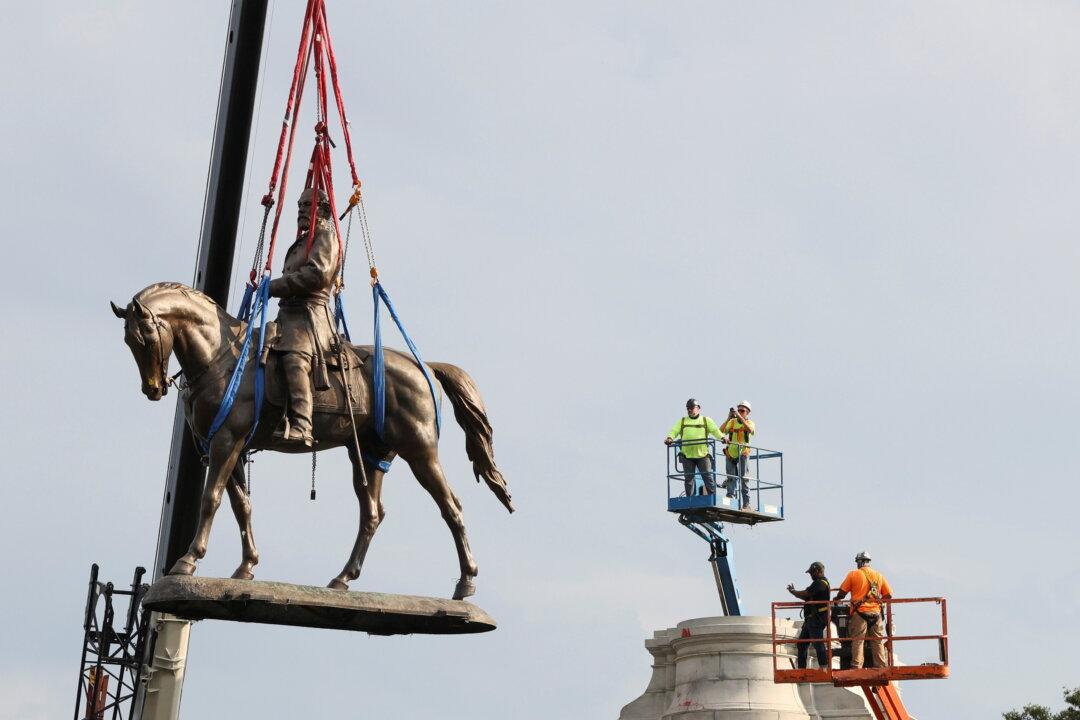Commentary
Earlier this month, a 21-foot-tall bronze statue of Robert E. Lee—perhaps the most famous monument to the Confederate general—was removed from Monument Avenue in Richmond, Virginia. Supporters of the statue’s removal, including Virginia Gov. Ralph Northam (D), hailed the event as a triumph for racial justice.





